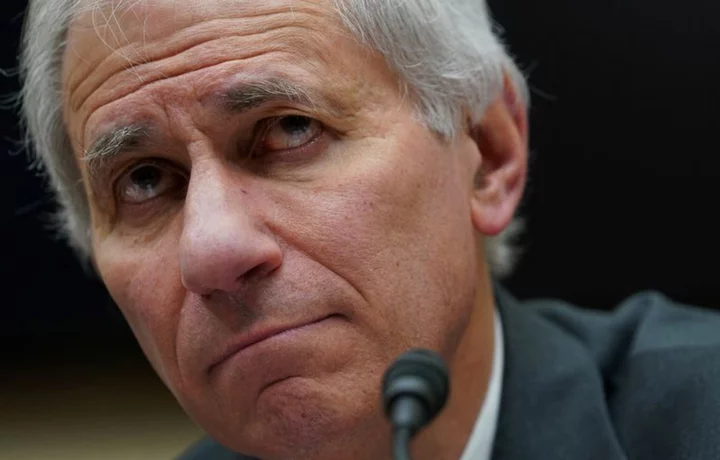By Pete Schroeder
WASHINGTON A top U.S. banking regulator is set on Tuesday to propose heightened rules to ensure regional banks can be safely dissolved in times of stress.
The Federal Deposit Insurance Corporation (FDIC) will vote on five separate proposals at a meeting, all aimed at ensuring banks with over $100 billion in assets are prepared for their own potential failures, and can be taken apart smoothly and quickly.
The push comes in the aftermath of a tumultuous spring that saw three larger banks fail, forcing regulators to scramble to backstop depositors and tap billions of dollars from the FDIC's insurance fund to sell off pieces of the firms to willing buyers.
Now, regulators are looking to toughen their rules, particularly for regional banks like PNC Financial Services Group Inc and Citizens Financial Group Inc.
"The failure of three large regional banks this spring...demonstrated clearly the risk to financial stability that large regional banks can pose," said FDIC Chairman Martin Gruenberg in a speech earlier this month previewing the proposals. "It makes a compelling case for action by the federal bank regulatory agencies to address the underlying vulnerabilities that made the failure of these institutions possible."
Among proposals the FDIC is expect to advance is one that would require firms of that size to issue more long-term debt, similar to a requirement already in place for the largest global banks. Requiring those firms to issue such debt could simultaneously provide more funds to offset potential losses, reassure depositors, and encourage investors to closely monitor a bank's operations, Gruenberg argued.
The regulator is also set to propose an overhaul to "living will" rules for banks, which require firms to detail how they could be safely taken apart after failing.
Gruenberg said banks should give regulators more options for how to deal with them in failure, such as which business lines could be sold separately, as opposed to a clean acquisition by another firm shortly after the defunct firms closed.
As banks failed last spring, the FDIC was unable to find immediate buyers for some firms, such as Silicon Valley Bank. And in the case of First Republic Bank, the FDIC ended up selling it to JPMorgan Chase, the nation's largest firm, leading to rebukes from some big bank critics about allowing the Wall Street giant to grow even larger.
"Based on the spring banking turmoil and Gruenberg’s speech, it’s clear that the regulators want to avoid rushed, over-the-weekend bank sales that either take a big chunk out of the FDIC’s Deposit Insurance Fund or require selling to an already-giant bank," wrote Ian Katz, managing director of Capital Alpha Partners, in a note.
The banking industry is already pushing back against the upcoming proposal and similar efforts, calling them unjustified and economically harmful.
"The FDIC and other regulators must demonstrate that all of these proposed changes...are justified by evidence and outweigh the significant costs to our economy,” said Rob Nichols, head of the American Bankers Association, in a statement in response to Gruenberg's speech.
(Reporting by Pete Schroeder; Editing by Megan Davies and Andrea Ricci)

